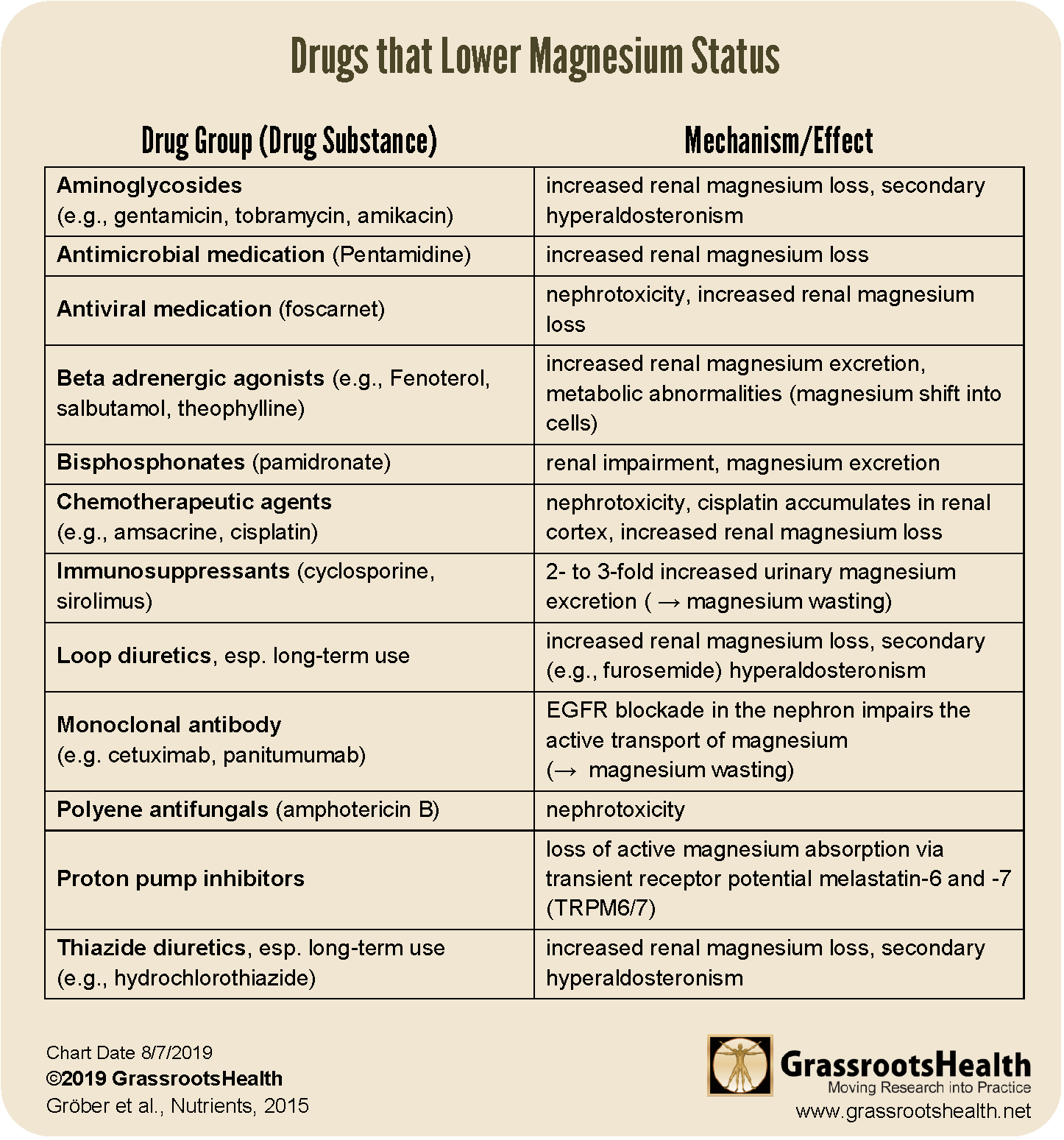Published on August 12, 2019
 In our last post about magnesium, we discussed magnesium intake and the high proportion of the population whose intake from the diet is well below the recommended daily intake level. Today, we will talk about how much dietary magnesium is actually absorbed, and what other factors may affect magnesium levels in the body besides intake, highlighting the importance of understanding the value of testing magnesium levels versus “blind supplementation.”
In our last post about magnesium, we discussed magnesium intake and the high proportion of the population whose intake from the diet is well below the recommended daily intake level. Today, we will talk about how much dietary magnesium is actually absorbed, and what other factors may affect magnesium levels in the body besides intake, highlighting the importance of understanding the value of testing magnesium levels versus “blind supplementation.”
How much magnesium gets absorbed?
An estimated 24-76% of the total magnesium input from diet and supplements is absorbed through the digestive system, mostly in the small intestine, while the rest is eliminated. A large part of that variation depends on magnesium status; the lower the magnesium status, the higher the absorption.
The form or type of magnesium ingested also affects absorption, with magnesium oxide and magnesium carbonate having a lower absorption compared to other forms, such as magnesium glycinate and magnesium citrate. The level of certain hormones, such as parathyroid hormone and calcitriol (the active form of vitamin D), genetics, and gastro-intestinal problems can also affect magnesium absorption.
Drugs can cause magnesium deficiency
Lastly, certain medications such as bisphosphonates, some antibiotics, and proton pump inhibitors, can greatly influence absorption, bioavailability, and excretion. See the table below for a list of some medications that can cause magnesium loss and deficiency.
Conditions Leading to Increased Risk of Deficiency
Certain diseases or conditions may lead to magnesium deficiency, such as alcoholism, some endocrine diseases, and renal disease. Individuals with insulin resistance or type 2 diabetes resulting in increased urination are at high risk for deficiency. Malabsorption due to gastrointestinal disorders, such as Chrohn’s disease, ulcerative colitis, celiac disease, Whipple’s disease, and others involving chronic diarrhea, can also cause decreased absorption and lead to deficiency.
Older adults may also be at risk of magnesium deficiency. This is due to several factors, including a decreased intake of magnesium, decreased gut absorption, and increased excretion of magnesium in the urine, all factors that are associated with age. A higher likelihood of chronic diseases with age also increases the chance of taking a medication that can interfere with magnesium absorption and utilization.
Are you getting enough magnesium?
Make sure your magnesium levels are not too low. Getting enough magnesium has been linked to a decreased risk of cardiovascular, mental-emotional, bone health and more. Find out your levels today! Log on to the shop (click the link below) to get your tests and see for yourself if your level can be improved.
Make sure you track your results before and after, about every 6 months!
How can I track my magnesium intake and levels over time?
To help you track your supplement use and nutrient levels, GrassrootsHealth has created an online tracking system called myData-myAnswers. For each specific supplement, you can track what days you take it, how much, and many other details. This will help you know your true supplemental intake and what patterns of use work for you to reach and maintain optimum nutrient levels. Check it out today!







